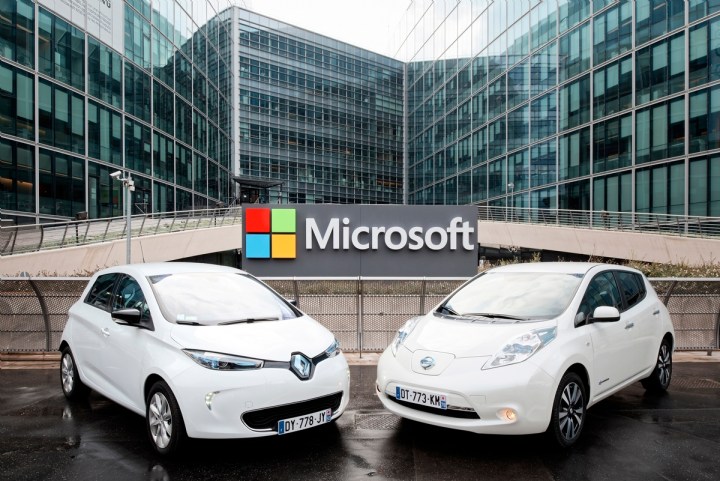
According to the announcement, applications stemming from the collaboration include advanced navigation, predictive maintenance, monitoring cars by remote, over-the-air updates, support for mobile devices, and more. They will “simplify and enhance” the relationship between man and machine by way of preventive maintenance, remote diagnostics, remote access, and usage-based information, the company said.
“While the connected car experience is in its infancy, we believe there’s so much potential to dramatically change the industry,” said Jean-Philippe Courtois, executive vice president and president of Microsoft global sales, marketing and operations. “We are partnering to accelerate Renault-Nissan’s mobile and cloud strategies and unlock new experiences for their customers.”
Nissan said that the Renault-Nissan Alliance chose Microsoft’s Azure platform because it supports a number of different operating systems. It also supports multiple programming languages and tools in addition to offering unlimited scalability, which should allow the Alliance to expand its customer base as it grows around the world. Nissan said that the Azure platform provides enterprise-grade security that’s backed by Microsoft’s “rigorous commitment to compliance.”
Thanks to the Azure cloud platform, drivers will be able to customize their settings and store them in the cloud. That means these settings can be transferred from one car to another, or locked to a specific automobile, just like locking settings to a specific desktop or laptop. This will supposedly make the driving experience more “personal.”
What’s interesting about the announcement is that Microsoft’s Azure platform also intends to make the driving experience more productive. That entails bringing the digital work and home worlds into the driving experience, possibly by preventing drivers from using their smartphones so they can focus on the road ahead. Outside of making voice-activated phone calls, connectivity could mean verbal Facebook updates, tweets from Twitter, sending messages to friends, and so on.
Nissan indicated that customers will be able to use a car’s connectivity to make automatic payments to tolls and parking spots. They could even automatically check into an airport as soon as the tires hit the parking lot. Nervous about leaving the car at the airport when away on a trip? The collaboration will include means for customers to monitor the vehicle from anywhere using a smartphone or laptop. Coolness.
“They could transfer control to a friend or relative who needs their car — without transferring physical keys. They will use a mobile application that helps them find the car, can trigger remote charging and preconditioning and lock and unlock the car,” the company said. Customers will even be able to locate their car and disable it when stolen.
Thanks to the collaboration, cars will become more “intelligent,” providing drivers with adaptive route suggestions based on each driver’s driving habits. Manufacturers will be able to provide unique features, while the data collected by cars could be used to advance automobile technology. All of this data, of course, will be housed on the Azure cloud platform.
Microsoft originally launched the Azure platform in February 2010. It offers over 600 services spanning data management, storage, mobile, media, compute, machine learning, developer, gaming, and so much more.


